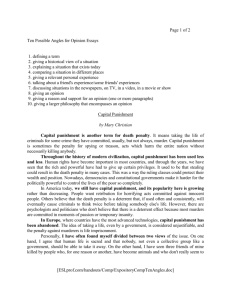CRIME AND PUNISHMENT REVISION NOTES 2
advertisement
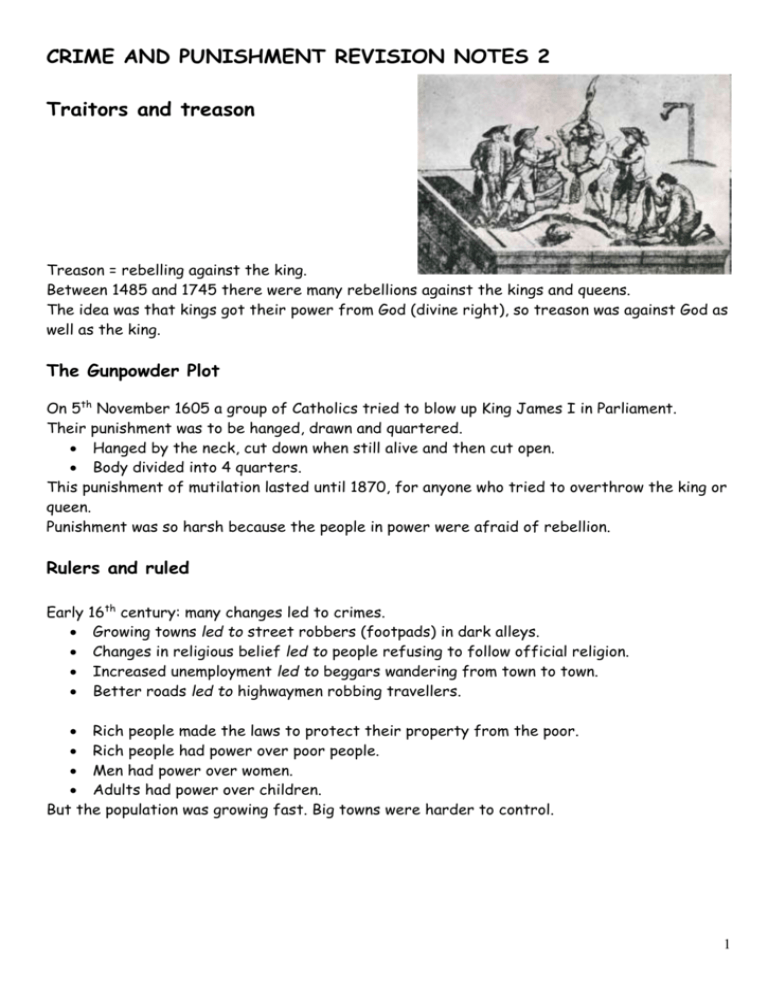
CRIME AND PUNISHMENT REVISION NOTES 2 Traitors and treason Treason = rebelling against the king. Between 1485 and 1745 there were many rebellions against the kings and queens. The idea was that kings got their power from God (divine right), so treason was against God as well as the king. The Gunpowder Plot On 5th November 1605 a group of Catholics tried to blow up King James I in Parliament. Their punishment was to be hanged, drawn and quartered. Hanged by the neck, cut down when still alive and then cut open. Body divided into 4 quarters. This punishment of mutilation lasted until 1870, for anyone who tried to overthrow the king or queen. Punishment was so harsh because the people in power were afraid of rebellion. Rulers and ruled Early 16th century: many changes led to crimes. Growing towns led to street robbers (footpads) in dark alleys. Changes in religious belief led to people refusing to follow official religion. Increased unemployment led to beggars wandering from town to town. Better roads led to highwaymen robbing travellers. Rich people made the laws to protect their property from the poor. Rich people had power over poor people. Men had power over women. Adults had power over children. But the population was growing fast. Big towns were harder to control. 1 Poaching Before, land had been common and shared. Now rich people were buying and enclosing common land. In the past ordinary people had the right to hunt animals like rabbits. Now there was a law against poaching. Poachers sometimes worked in gangs. Main punishments Humiliation – stocks or pillory Fines – paying money Execution – hanging (for ordinary people) or beheading (for rich people) If a woman killed her husband she was strangled and burnt. The idea? Retribution (punishment) and Deterrence (preventing crime) The ‘Bloody Code’ This was the system of punishment that had death as the punishment even for small crimes. In 1688 50 crimes were punished by death; by 1815 death was the punishment for 225 crimes. Stealing sheep, damaging trees and stealing rabbits all had the death penalty. One famous criminal was Jack Shepherd, a thief who made very clever escapes from prison. When he was hanged, 250,000 people were in the streets to cheer him as a hero. Hangings were at Tyburn just outside London. Preventing crime No police force. Constables and watchmen. Thieftakers. The most famous thieftaker was Jonathan Wild. He pretended to catch thieves. In fact he was a criminal in charge of a gang of thieves. He was hanged in 1725. 2
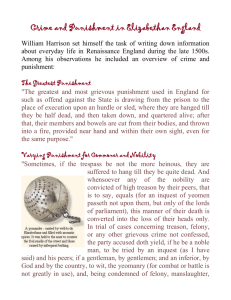



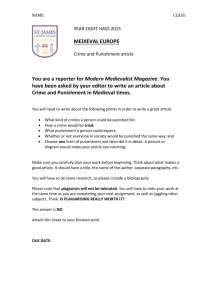
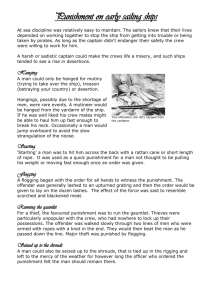



![Abolition of the Death Penalty []](http://s3.studylib.net/store/data/007408009_1-f15316418994e5ef549944bacdd39bf8-300x300.png)

